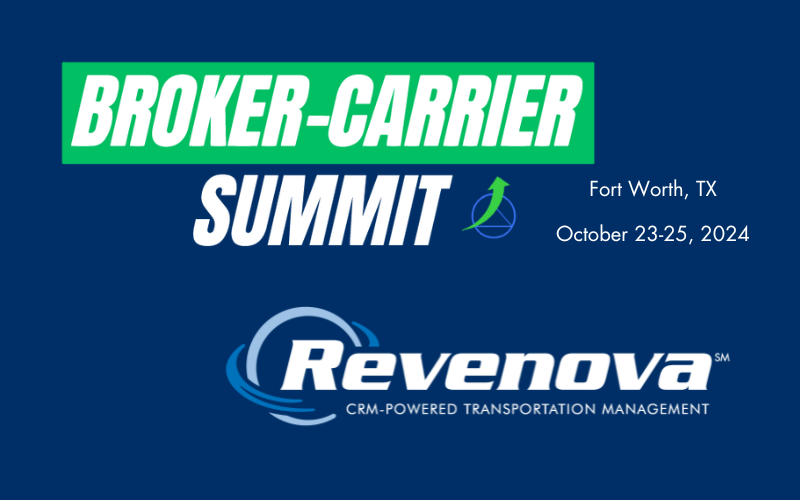
Rein in Transportation Costs & Added Fees with the Right TMS
Anyone who has ever looked over a freight bill knows that the final tab usually includes various miscellaneous items including—but not limited to—dwell time, demurrage, fuel surcharges, and accessorials. And while some of these fees just come with the territory, there are ways to both minimize them and ensure that you’re only paying what you actually owe.
With most companies focused on cost containment right now, a transportation management system (TMS) can be your best friend when it comes to auditing freight bills and red-flagging entries that may not be applicable. The TMS software can also recognize overcharges and help you keep your freight bills more in line with expectations. Even better, this work can be done retroactively, which means invoices billed after the fact are subject to the same level of scrutiny.
“For most shippers and carriers, dwell times, demurrage and detention are the biggest expenses,” says Dave Romanchuk, Director of Product Management at Revenova. “An importer can wind up with a $1,000 bill for one container that sat at a port for several days.” Those costs really add up for higher-volume shippers that have to manage those scenarios at multiple ports or truck depots.
“Before you know it, those costs are hitting your bottom line and reducing profit margins on every order that you send or receive,” Romanchuk explains. The bigger issue is that many shippers just receive, process and then pay their freight invoices without ever giving them a second glance. Over time, this approach can result in significant financial loss that could be mitigated with the help of modern, cloud-based TMS.
For example, Revenova TMS includes a time-based workflow assessment tool that can be used to track a company’s demurrage and detention times. The tool sends email reminders and bell notification icons to alert users about extended dwell times. “The TMS keeps those issues top-of-mind and helps companies make better decisions that lead to lower transportation costs over time,” says Romanchuk, who adds that drayage companies tend to see some of the biggest benefits from this TMS capability.
Trucks, Containers and More
Because Revenova TMS was built on the Salesforce customer relationship management (CRM) platform, it also taps into the power of that platform’s time-based, event-driven actions and workflows. The TMS also integrates with many third-party apps that handle such functions, and Revenova is currently working with several partners to develop similar capabilities for container freight.
 “Using an application programming interface (API) and Salesforce, the TMS will be able to send container updates, gating-in/gating-out data and container statuses right in the platform,” Romanchuk says. This is just one of many ways that Revenova leverages its outside partners to create expanded functionality for its TMS users—all with a straightforward, plug-and-play approach that enables real-time data sharing across systems.
“Using an application programming interface (API) and Salesforce, the TMS will be able to send container updates, gating-in/gating-out data and container statuses right in the platform,” Romanchuk says. This is just one of many ways that Revenova leverages its outside partners to create expanded functionality for its TMS users—all with a straightforward, plug-and-play approach that enables real-time data sharing across systems.
A modern, cloud-based TMS like Revenova’s can also auto-apply accessorials as part of its broader set of functionalities. Rolled out in early-2024, this feature is specifically for less-than-truckload (LTL) freight. Knowing that some shipping locations will always incur some type of accessorial fee (i.e., limited access delivery, etc.), Revenova added an automated way for users to establish accounts using auto-applicable accessorial types.
This new feature makes it even easier for users to identify accurate accessorials and flags those fees that don’t apply. “A recent college grad that’s just getting into the brokerage industry may not know what a limited accessorial is or have the context behind it,” Romanchuk explains. “As a result, they may forget to add it. When the carrier winds up charging them for that specific assessorial, the company winds up paying more than it expected for the shipment.”
Romanchuk says the auto-apply feature was developed after a customer requested it. “One of our large LTL customers that has thousands of shipping locations asked for it,” he says. “They were dealing with high employee turnover, which made it very difficult to manage specific sets of accessorials.” Thanks to the auto-apply accessorials feature in its TMS, the company now has the automated checks and balances in place to ensure that it never pays more than it should for its LTL freight services.
Software that Helps Manage Adversity
As rising business costs, port and rail strikes, geopolitical turmoil and other issues continue to impact the world’s supply chain, it’s good to know that a cloud-based TMS like Revenova has your back when it comes to reducing transportation costs and flagging costs that don’t make sense for a particular shipment. “The adversity everyone is dealing with in business just breeds more ingenuity on the software side,” says Romanchuk, “with automation playing a key role in the evolution.”
To learn more about Revenova TMS, Request a Demo. Follow Revenova on LinkedIn, YouTube, and X for the latest updates and news about Revenova TMS, the original CRM-powered Transportation Management System.




